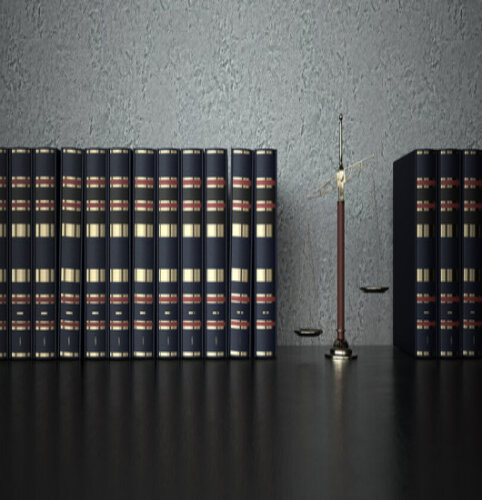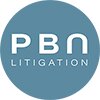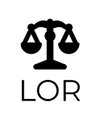Best Premises Liability Lawyers in Dublin
Share your needs with us, get contacted by law firms.
Free. Takes 2 min.
List of the best lawyers in Dublin, Ireland
About Premises Liability Law in Dublin, Ireland
Premises liability law in Dublin, Ireland, pertains to the legal responsibilities property owners and occupiers have to ensure the safety of individuals on their premises. This branch of law is crucial in addressing incidents where individuals suffer injuries or damages due to the negligence or unsafe conditions of a property. Whether it’s a slip and fall in a grocery store, a trip on uneven pavement, or an injury in a rented apartment, premises liability can cover a wide range of situations.
Why You May Need a Lawyer
There are several scenarios where you might require legal assistance in premises liability cases:
- If you have been injured on someone else's property and believe the injury was due to negligence or unsafe conditions.
- If you're a property owner or occupier facing a legal claim or lawsuit alleging that your premises were unsafe.
- If you need guidance on how to pursue compensation for medical expenses, lost wages, and other damages following an injury.
- If you're unsure about the legal standards and responsibilities related to premises safety and need advice on compliance and risk management.
- If the insurance company is disputing or denying your claim related to a premises liability incident.
Local Laws Overview
Key aspects of local laws in Dublin, Ireland, relevant to premises liability include:
- Occupier's Liability Act 1995: This Act outlines the duty of care owed by occupiers of premises to visitors. Occupiers must take reasonable care to ensure that visitors do not suffer injury or damage due to the state of the premises.
- Common Law Principles: In addition to statutory duties, property owners and occupiers must adhere to common law principles that require them to keep their premises reasonably safe.
- Health and Safety Regulations: Businesses and public premises must comply with various health and safety regulations, which help to prevent accidents and ensure the safety of customers and visitors.
- Defamation of Character: Property owners also have protections against false claims that can harm their reputation, emphasizing the importance of truthful reporting in premises liability cases.
Frequently Asked Questions
What is premises liability?
Premises liability refers to the legal responsibility of property owners or occupiers to ensure the safety of individuals on their property. If an individual is injured due to unsafe conditions on the property, the owner or occupier may be held liable.
Who can be held liable in a premises liability case?
The person or entity in control of the premises can be held liable, which may include property owners, occupiers, landlords, tenants, and businesses operating on the property.
What types of incidents fall under premises liability?
Common incidents include slips, trips, and falls, injuries from falling objects, inadequate lighting or security leading to injuries, and unsafe or hazardous conditions that cause harm.
What should I do if I am injured on someone else's property?
Seek medical attention immediately, report the incident to the property owner or manager, document the scene with photos, gather contact information of witnesses, and consult with a lawyer to understand your legal options.
How long do I have to file a premises liability claim in Dublin?
In Ireland, the statute of limitations for personal injury claims, including premises liability, is generally two years from the date of the incident.
What kind of compensation can I seek in a premises liability claim?
Compensation may cover medical expenses, lost wages, pain and suffering, and other damages resulting from the injury.
Will my case go to court?
Many premises liability cases are settled out of court. However, if a fair settlement cannot be reached, your case may proceed to trial.
What if I was partly at fault for my injury?
Ireland follows a principle of contributory negligence, meaning your compensation may be reduced by the percentage of your fault in the incident.
Do I need to prove the property owner was negligent?
Yes, you must demonstrate that the owner or occupier failed to take reasonable care to ensure the safety of the premises, leading to your injury.
Can I claim if the injury happened in a rental property?
Yes, tenants can file premises liability claims against landlords if the injury was caused by the landlord's failure to maintain safe living conditions.
Additional Resources
For further assistance, consider reaching out to:
- The Law Society of Ireland: Offers resources and directories to find qualified solicitors specializing in premises liability.
- Citizens Information: Provides comprehensive information on rights and obligations related to premises safety in Ireland.
- Personal Injuries Assessment Board (PIAB): A government body that assesses personal injury claims, including those arising from premises liability incidents.
Next Steps
If you need legal assistance with a premises liability issue, follow these steps:
- Document the incident thoroughly, including photos, witness statements, and medical records.
- Consult with a qualified premises liability lawyer to evaluate your case and determine the best course of action.
- File a claim within the statute of limitations to preserve your right to seek compensation.
- Engage in negotiations or legal proceedings with the guidance of your lawyer to pursue a fair settlement or judgment.
Taking timely action and seeking expert legal advice can significantly impact the outcome of your premises liability case.
Lawzana helps you find the best lawyers and law firms in Dublin through a curated and pre-screened list of qualified legal professionals. Our platform offers rankings and detailed profiles of attorneys and law firms, allowing you to compare based on practice areas, including Premises Liability, experience, and client feedback.
Each profile includes a description of the firm's areas of practice, client reviews, team members and partners, year of establishment, spoken languages, office locations, contact information, social media presence, and any published articles or resources. Most firms on our platform speak English and are experienced in both local and international legal matters.
Get a quote from top-rated law firms in Dublin, Ireland — quickly, securely, and without unnecessary hassle.
Disclaimer:
The information provided on this page is for general informational purposes only and does not constitute legal advice. While we strive to ensure the accuracy and relevance of the content, legal information may change over time, and interpretations of the law can vary. You should always consult with a qualified legal professional for advice specific to your situation.
We disclaim all liability for actions taken or not taken based on the content of this page. If you believe any information is incorrect or outdated, please contact us, and we will review and update it where appropriate.















